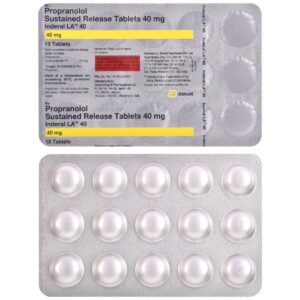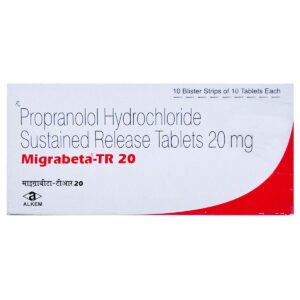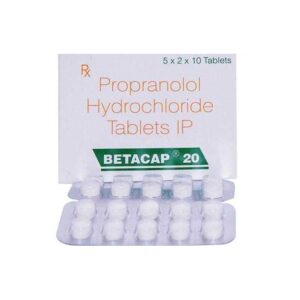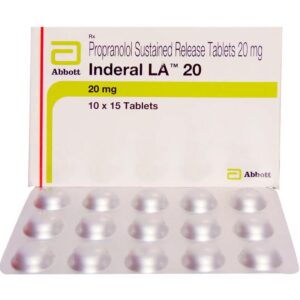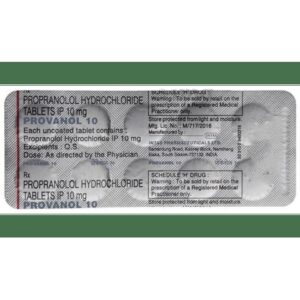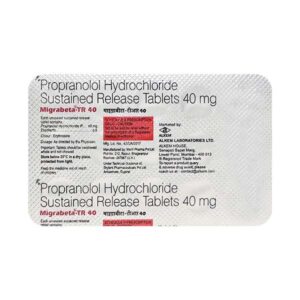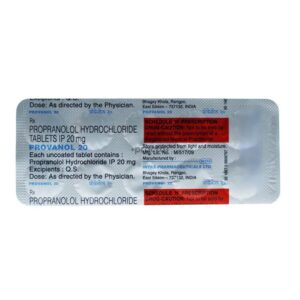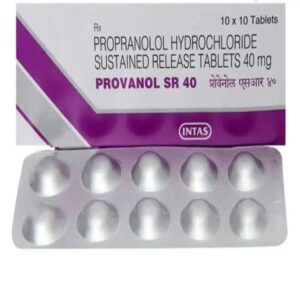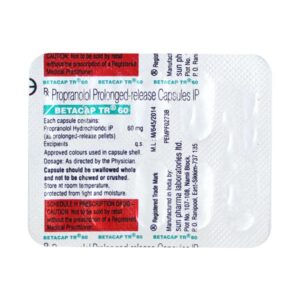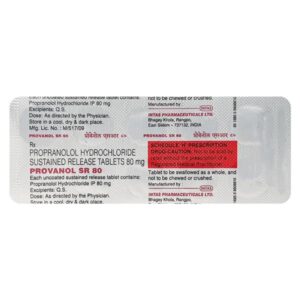PROPRANOLOL
PROPRANOLOL: Propranolol is a medication that belongs to the class of drugs known as beta-blockers. It is used to treat a variety of conditions, including high blood pressure (hypertension), chest pain (angina), irregular heartbeat (arrhythmias), and to prevent migraines.
The main mechanism of action of propranolol is through blocking the effects of adrenaline and noradrenaline on the beta receptors in the heart. By doing so, it reduces the heart rate and force of contraction, resulting in a decrease in blood pressure. Additionally, propranolol also reduces the release of renin, which is a hormone involved in regulating blood pressure.
The dose of propranolol depends on the condition being treated. For hypertension, the typical starting dose is usually 40 mg twice a day, which can be increased if needed. For angina, the starting dose is generally 80 mg per day, divided into two or three doses. The dose for arrhythmias can vary and should be determined by a healthcare professional. For migraines, the initial dose is usually 80 mg per day, divided into two or three doses, which can be increased if necessary.
Some common side effects of propranolol include fatigue, dizziness, low blood pressure, slow heart rate, and gastrointestinal disturbances such as nausea, vomiting, and diarrhea. It may also cause sleep disturbances, depression, vivid dreams, and cold extremities. In rare cases, propranolol can worsen heart failure and can cause bronchospasm in individuals with asthma or chronic obstructive pulmonary disease (COPD). As with any medication, it is important to consult with a healthcare professional for personalized advice and to discuss any potential risks or allergies.

